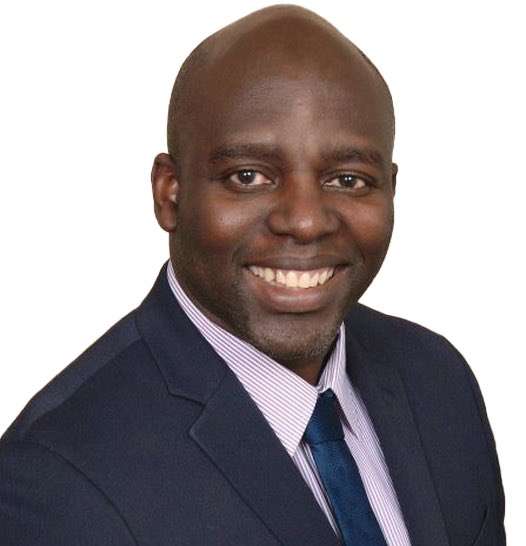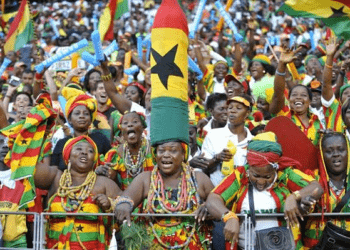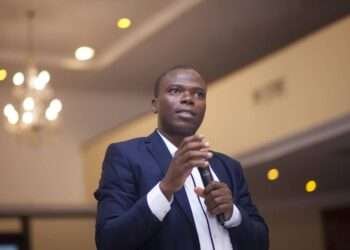The possible withdrawal of USAID funding under the Trump administration has sparked deep concerns about its implications for Ghana.
The Fellow at the Centre for Democratic Development (CDD-Ghana), Dr. John Osae Kwapong shared perspectives on the matter, reflecting on the broader consequences for development work in Ghana and the strategic considerations for both the United States and Ghanaian governments.
Dr. Osae Kwapong began by acknowledging the devastating impact of potential USAID funding cuts on development organizations operating in Ghana. He emphasized how these cuts could force many organizations to downsize, thereby exacerbating the country’s unemployment crisis.
Dr. Kwapong pointed out that this issue extends beyond just one organization, as numerous other institutions engaged in community and development work also rely on USAID funding. The uncertainty surrounding this funding presents significant risks to their continued operations.
“.. So think about all of the other organizations in Ghana, doing development work, doing community work, that rely on funds from an agency like the USAID. It’s not a comforting time.”
Dr. John Osae Kwapong CDD – Fellow
Ghana’s Limited Bargaining Power
When asked whether Ghana has enough leverage to demand special treatment in the face of these cuts, Dr. Osae Kwapong was skeptical. He argued;
“Now, as to what Ghana can do at this point—not until someone or some persons are able to impress upon the Trump administration that some of these actions, in as much as it is driven by this idea that we want to pull back from the world or we want to stop doing certain things to save the taxpayer money, they would have to balance that against their own strategic interest and their own global influence.”
Dr. John Osae Kwapong CDD – Fellow
Dr. Kwapong also pointed to a growing sentiment within certain circles of the U.S. administration that agencies like USAID are unnecessary drains on taxpayer money. He noted;
“I don’t know how you make that case to a Trump administration where, with all due respect, a figure like Elon Musk is playing a critical role in some of these decisions, arguing that these kinds of federal agencies are just a drain on taxpayer money.”
Dr. John Osae Kwapong CDD – Fellow
While he acknowledged the legitimacy of concerns about U.S. taxpayers’ money, Dr. Kwapong stressed;
“I understand those who say it is the money of the American taxpayer, and so we have to be mindful of how we spend it. All of those are legitimate arguments. But again, it is also part of the U.S.’s global strategy and its own interests. For me, when America has pulled back from the world, it has not been the best time for the country. It is when we engage, when we show leadership, when we make sure that we are shaping the world globally, that enables us to maintain that image that we’ve always maintained.”
Dr. John Osae Kwapong CDD – Fellow

Turning to the potential impact on Ghana, particularly under the leadership of President John Mahama, Dr. Kwapong noted;
“It couldn’t have come at a not-so-good time, right? Because if you think back to the Mahama administration back in 2013, his first presidency when he took over, there were some of these global upheaval challenges, which they made an argument that it did affect our local economy and ultimately the decision to go to the IMF for a bailout.”
“Here you are thinking you were going into FY 2025 expecting these monies from USAID. And for a new administration that has also promised to eliminate certain key taxes already under an IMF program, facing some fiscal challenges—and then this also comes in. You have to start thinking immediately and strategically about how you find the resources to fill in these gaps.”
Dr. John Osae Kwapong CDD – Fellow
Given these challenges, Dr. Kwapong suggested that the Ghanaian government must explore alternative funding sources. This may involve turning to other donor partners or reassessing domestic spending priorities.
The decision to eliminate certain taxes while facing potential aid cuts puts the Mahama administration in a difficult position, requiring careful fiscal planning to maintain stability.
The Future of U.S. Aid Under Trump
Dr. Kwapong also reflected on the broader implications for the Trump administration’s approach to governance. He noted;
“The Trump administration would look different. I’m sure some of these things would be subjected to a lot of litigation. Congress would have a role in deciding, for example, whether USAID goes or stays. If it stays, how it looks like, you know, the Department of Education being one of them that they want to get rid of—all of those things.”
Dr. John Osae Kwapong CDD – Fellow
While time will tell how these proposed changes unfold, Dr. Kwapong emphasized that their potential consequences for Ghana are immediate.
Dr. John Osae Kwapong’s analysis underscores the precarious position Ghana finds itself in as it navigates the possibility of USAID funding cuts. The impact on development organizations, employment, and government fiscal planning could be significant. With President Mahama’s administration already facing economic challenges, the loss of anticipated aid adds another layer of complexity.
Ultimately, Dr. Kwapong suggests that Ghana must begin exploring alternative funding sources and reconsidering its spending priorities. At the same time, efforts to engage with U.S. policymakers and make a case for continued support will be crucial. Whether these efforts will succeed remains uncertain, but Ghana must act decisively in response to this looming challenge.





















